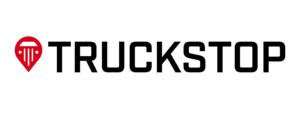In the complex and fast-paced world of freight brokering, fraud poses a significant and persistent threat, impacting individual businesses plus the overall industry’s integrity. The financial implications are profound, with brokers potentially losing millions annually to deceptive practices. However, a proactive approach to security can drastically mitigate these risks with a blend of diligent research, rigorous verification processes, and the strategic application of technology. By understanding the fraud mechanisms within the industry, brokers can arm themselves with the knowledge and tools necessary to protect their operations, maintain their reputations, and support the overall health of the freight sector.
For a more in-depth exploration of these strategies and their implementation, let’s delve into the specific measures that can protect your business against fraud.
Due Diligence: The First Line of Defense
Thorough Carrier Research
Begin with verifying Motor Carrier (MC) numbers and Department of Transportation (DOT) registration through government databases, such as the Federal Motor Carrier Safety Administration’s (FMCSA) and the U.S. Department of Transportation’s (USDOT) websites. A carrier’s safety record and any history of complaints are also telling. Employing industry resources and conducting credit checks can further illuminate a carrier’s financial stability:
- Verify Carrier Information: Ensuring the accuracy of contact details like phone numbers and email addresses is crucial. Inconsistencies can be a red flag, signaling potential fraud.
- Request Additional Documentation: Documents such as insurance certificates, licenses, and permits should be verified directly with the issuing authorities to ensure their legitimacy.
- Scrutinize References and Contracts: References can provide invaluable insights into a carrier’s reliability. Additionally, meticulously reviewing contracts for clear terms can prevent future disputes and protect your interests.
Careful Vetting: Separating Fact from Fiction
Fraudulent carriers often present warning signs, such as rates significantly below market averages or operating with minimal authority. Investigating these anomalies can prevent entanglement with dishonest operators. Pay special attention to carriers with limited history or mismatched vehicle information, as these can indicate fraudulent behavior.
Tune in to three warning signs of a potential bad actor:
- A carrier with less than three months of authority and zero inspections.
- Names or phone numbers are not provided for the carrier.
- A carrier with just a single truck, and the VIN doesn’t match the one you have on record.
Technology as an Ally: Automating the Fight Against Fraud
Incorporating technology can streamline the vetting process, making identifying and avoiding fraudulent carriers easier. Utilizing a secure load board, such as Truckstop, equipped with features like multi-factor authentication (MFA) and ID validation can be a game-changer in the fight against fraud. Additionally, Truckstop RMIS Carrier Onboarding and Monitoring helps you identify and mitigate identity theft and suspicious activity before it impacts your bottom line. Get daily status updates, change notifications, and carrier directory sourcing tools to save time and protect your business.
Ultimately, several keys to ward off potential threats are diligence, vigilance, and the strategic use of technology. By focusing on these and other important efforts, brokers can protect their business and contribute to a more secure and reliable freight industry.


